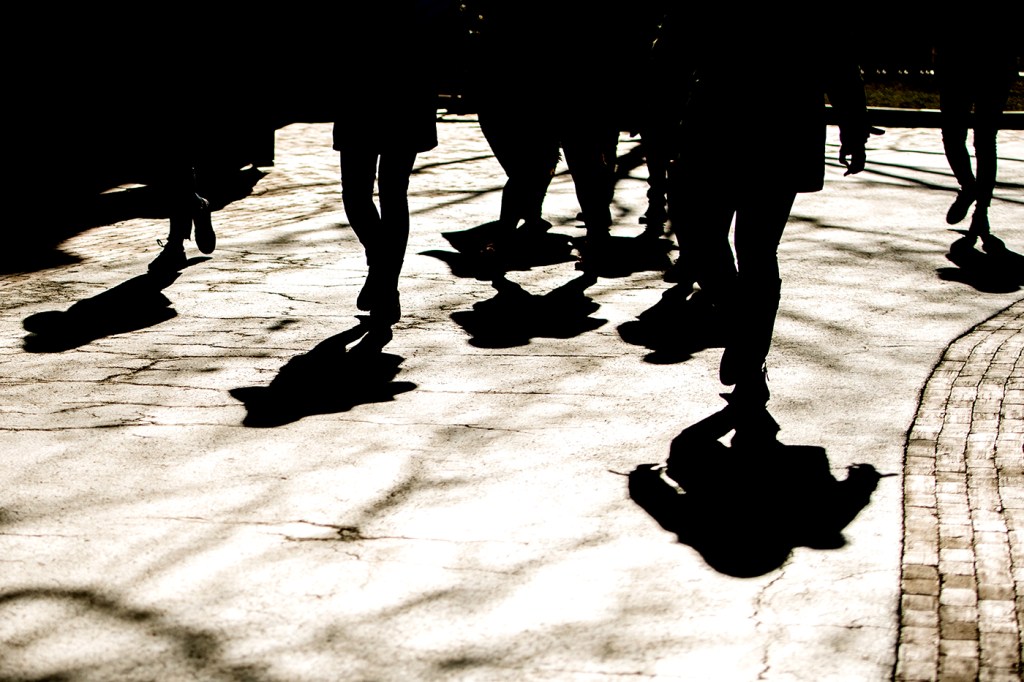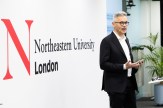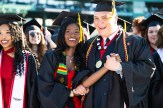Northeastern asks those returning from countries with ‘Level 3’ COVID-19 warning to self-isolate for 14 days

Following the latest developments in the global spread of the coronavirus disease COVID-19 and the related public health guidelines, Northeastern University is strengthening its policy on students, faculty, and staff who return to campus after traveling abroad.
The university is requesting that people traveling from countries that have been identified by the Centers for Disease Control as “Level 3” (currently China, South Korea, Italy, and Iran) not return to any of Northeastern University’s campuses for 14 days even if they are symptom-free. Northeastern has campuses across North America as well as in London.
“We’re following the incubation guidelines from all of the trusted medical sources around the world,” said Khushal Safi, senior security analyst for international safety at Northeastern. “While the medical community doesn’t have all of the information yet, there are some studies that indicate that people who don’t yet show symptoms may be capable of transmitting the illness.”
The university recommends that faculty, staff, and students arriving from Level 3 countries monitor their health for 14 days while remaining at home, avoiding visitors, and not attending classes or other group gatherings. Northeastern has technology and online capabilities that can enable classes and work to progress remotely.
“This is a prudent step to ensure the safety of our community, which is our top priority,” said university chancellor Ken Henderson, co-chair of Northeastern’s COVID-19 task force. “This decision was taken out of an abundance of caution to minimize the risk of local transmissions.”
The CDC website should be checked daily for the latest updates, as the list of Level 3 countries may change.
The university is requesting students who are returning from Level 3 countries to notify faculty of their inability to return to class. In turn, faculty should share this information with deans or department chairs, and staff members should speak with supervisors.
Students, faculty, and staff who are traveling are urged to fill out the university’s Travel Registry and self-report forms.
“The situation is incredibly fluid,” said Michael Armini, senior vice president for external affairs, a co-chair of Northeastern’s COVID-19 task force, which convenes its members every morning. “Over the weekend we concluded that strengthening the requirements of those returning from Level 3 countries is in the best interest of the university community. We realize this places an extra burden on some travelers, but we believe the potential benefits far outweigh the costs.”
If symptoms of COVID-19 develop at any point, regardless of recent travel destinations, Northeastern urges students to contact their primary care clinicians, and faculty and staff to contact their appropriate healthcare providers. (Medical resources for each of Northeastern’s campuses can be found here.) Anyone who shows symptoms should self-isolate as soon as possible, Safi said.
“We are urging people to self-isolate for the sake of the entire community,” Safi said. “We want people to seek the necessary care not only for themselves but also for everyone else around them.”
University updates to faculty, staff, and students will be issued via email and posted on the dedicated COVID-19 website. Northeastern is also equipping call-center operators to provide additional advice and assistance.
“The COVID-19 task force, consisting of leaders across Northeastern, is taking a proactive and future-focused approach to planning for all contingencies,” Henderson said. “Leadership and area experts across Northeastern are working vigilantly to constantly improve our readiness and response to the situation.”
For more information, visit news-northeastern-edu.go-vip.net/coronavirus.
For media inquiries, please contact media@northeastern.edu.






